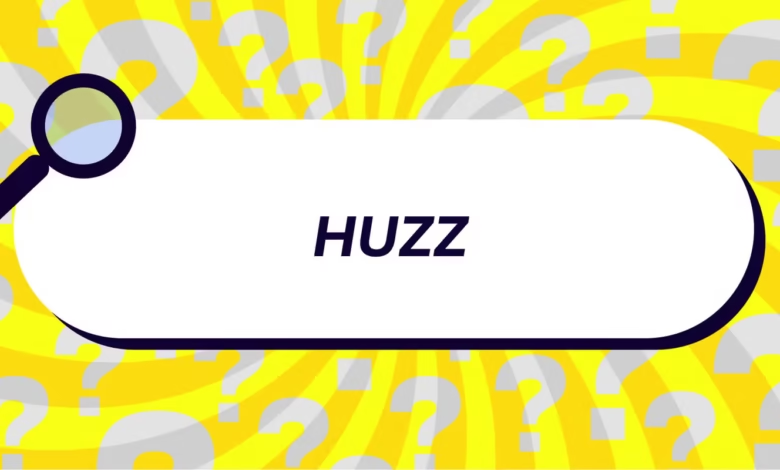Huzz Meaning: Unpacking One of Gen Alpha’s Most Confusing Slang Terms

When you first encounter huzz meaning, you might raise an eyebrow or scratch your head—and that makes perfect sense. This trending piece of lingo, popping up across TikTok feeds and Discord chats, has become a lightning rod for interpretation, misinterpretation, and curiosity. But here’s a casual, expert-level exploration that balances accessibility with depth, and keeps your reading experience effortless and free of grammatical stumbles.
Huzz Meaning — What’s Going On?
At face value, Huzz Meaning often refers to “a girl they want to impress” or “a crush,” capturing a lighter, more innocent subtext—similar to terms like “boo” or “pokier.” This playful usage can mask more loaded origins, though, so context is vital (some kids may not even know the historical baggage). For example, you might hear, “Gotta look good for my Huzz Meaning tonight,” and think it’s just sweet swagger—until you scratch beneath the surface.
Flip the switch, and now huzz meaning leans into sketchier territory: many users trace it back to the slang “hoes,” using huzz as a sanitized, meme-friendly stand-in. Expressed by streamers and meme-makers, it often takes center stage in phrases like “Where the huzz at?”—and that thin veneer of humor doesn’t erase the original word’s disrespectful undertone.
The Roots — Where Did Huzz Come From?
While Huzz Meaning may seem like brand-new slang, its roots trace back to the digital stage—especially Twitch streaming culture. The popular streamer Kai Cent started using the term around 2023, sprinkling it into live streams with a casual flair that audiences ate up. Since then, it has metastasized through TikTok and meme culture.
Part of huzz’s power lies in the “-uzz” trend. Think bruzz (bro + -uzz), gruzz (grandma/grandpa + -uzz), and even chuzz (“chopped huzz”) in certain contexts. This suffix explosion isn’t just playful; it’s a linguistic strategy shaped by algorithmic culture—slightly off-kilter, obscure, and ripe for virality.
New Slang, Old Problems — When Playfulness Tips into Disrespect
Though some teens use huzz lightly, likening it to affectionate terms, others are painfully aware—and intentionally co-opt the term’s disrespect. This dual nature makes it tricky: is it harmless meme-talk, or thinly veiled misogyny? As with many slang terms, tone, intent, and awareness matter deeply.
Experts like Philip Lindsay—an educator and content creator—highlight this ambiguity. Some students wield the term innocently; others know full well its origin and edge. That muddy line means parents, teachers, and anyone navigating youth culture must maintain awareness without overreacting.
Swelling Through Social Media — How Huzz Became a Meme Staple
The journey of Huzz Meaning from Twitch to TikTok to everyday conversation shows just how fast meme-driven language spreads. Viral trends, comedic formats, and influencer loops turn fringe slang into common lingo, especially when algorithmic systems reward repetition and novelty.
This digital ripple effect also means huzz can surface in unexpected places—from Snapchat group chats to Discord servers, comment threads, or meme video captions. Just when you think the term is dead, someone revives it with a fresh spin, thanks to content algorithms breathing life into the obscure and absurd.
How to Navigate Huzz in Real Life and Online
If you’re encountering this term—whether as a parent, educator, or curious reader—context is your best friend. Ask open-ended questions like: “What did you mean by ‘huzz’?” Let usage guide your response. A light-hearted conversation about word origins and respect can be more productive than a lecture.
If you’re on the content-creation or moderation side, watch how Huzz functions in your community. Is it being used humorously, or is it fueling subtle demeaning undertones? Slang evolves—your role might be to model awareness and encourage mindful use. Algorithms aren’t neutral; they amplify whatever slaps hardest.
FAQ: Huzz Meaning — Clearing Up Common Questions
Q: What does “huzz” mean?
A: It varies—sometimes a playful term for a crush or girl (“boo”), other times a sanitized version of “hoes.”
Q: Where did it originate?
A: Popularized around 2023 by Twitch streamer Kai Cenat; then spread through TikTok and meme culture.
Q: What are related terms?
A: Bruzz (bro), gruzz (grandparent figure), chuzz (“chopped huzz”)—all part of the “-uzz” meme pattern.
Q: Is “huzz” offensive?
A: It can be—while some use it casually, others repurpose it knowingly for disrespect. Context and intent matter.
Q: Should adults be concerned?
A: Understanding is better than policing. Open conversations help teens reflect on language impact.
Key Takeaways
- Huzz’s meaning is double-sided—playful on one hand, problematic on the other.
- It stems from streaming culture and got supercharged by viral trends and algorithmic loops.
- The “-uzz” suffix trend underscores how digital creativity evolves language for humor and virality.
- Navigating it requires curiosity, sensitivity, and context-awareness.
- Conversation > confrontation: guide rather than overcorrect—especially when the lines are murky.